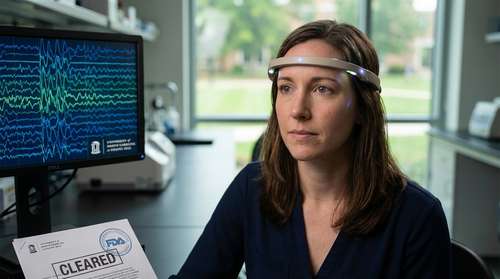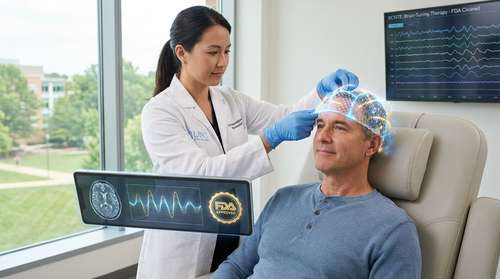Depression can affect people at various stages of life and is a leading mental health condition often associated with other physical illnesses and suicidal thoughts. Although depression can occur at any age, there is a specific form of depression known as geriatric depression, which typically affects people aged 65 and older.
According to the CDC, approximately 6 million seniors in the United States experience geriatric depression yearly, yet only 11.5% of this population is diagnosed. The rest are left to struggle with their mental health and overall well-being.
These statistics are alarming, especially considering that geriatric depression is often undiagnosed. Healthcare providers may attribute the symptoms to other factors, such as the presence of multiple illnesses, the side effects of concurrent medications, or simply the aging process itself.
Geriatric depression isn’t just a feeling of sadness; it can inherently affect an individual’s thought process and behavior, often leading to harmful changes in their actions. Therefore, it is important for both young and old to pay attention to elderly mental health and take a stand in the fight against geriatric depression.
Causes of Geriatric Depression

A senior talking to a psychologist | Yay Images
There is no single cause of geriatric depression, but it is usually the result of a combination of physical, social, biological, emotional, and psychological factors.
1. Physical Factors
Physical risk factors that affect elderly mental health and can lead to geriatric depression include:
Chronic Illness: Many seniors struggle with chronic conditions such as hypertension, stroke, arthritis, kidney disease, diabetes, heart disease, dementia, and cancer. These health issues can lead to symptoms of depression and feelings of helplessness due to declining health.
Medications: The elderly often take medications to treat one or more chronic illnesses which increases the risk of side effects, and in turn can worsen their quality of life and mimic symptoms of depression.
Sensory Impairments: A loss of sight or hearing can lead to increased feelings of hopelessness, isolation, and a higher risk of depression.
2. Social Factors
Having a rewarding social life can increase feelings of happiness and community. However, several factors can cause quite the opposite.
Isolation and Loneliness: As seniors age, they often experience several types of loss. This may include children moving out to start their own families, retirement, or limited mobility due to illnesses like stroke. The grief from the death of close friends, family, divorce, or the loss of a spouse can trigger depressive symptoms.
Reduced Social Support and Abuse: Living alone can lead to feelings of abandonment and contribute to depression in the elderly. Additionally, abuse from caregivers—whether verbal, emotional, or physical—can cause feelings of worthlessness and a wish for death to end the suffering.
Financial Strain: Financial difficulties, such as not having enough to care for themselves or falling victim to fraud or job loss, can lead to increased stress, restlessness, and sadness.
Living Arrangements: Living in a care home often means a loss of independence and control, which can contribute to depression.
3. Biological Factors

Women are more likely to experience geriatric depression than men | Unsplash
Several biological factors can predispose seniors to geriatric depression including;
- Hormonal Changes: During this stage of life, hormones such as estrogen and testosterone rapidly decline, which can lead to mood disturbances and changes in usual activity.
- Neurological Changes: As we age, the production of feel-good chemicals or neurotransmitters in the brain decreases. This can contribute to lingering feelings of sadness, which may contribute to geriatric depression.
- Genetic Predisposition: Individuals with a family history of depression are at an increased risk of having depression in their later years.
- Gender: Females are more likely to experience depression than males, due in part to hormonal changes involving estrogen and progesterone, as well as the impact of menopause on mental health.
4. Emotional and Psychological Factors
How we feel can sometimes impact our actions and behaviours and could present as signs of depression in seniors.
- Chronic Stress and Trauma: Long-term stress from worries, health concerns, or unresolved past trauma can be replayed repeatedly in the mind, increasing the risk of depression.
- Low Self-Esteem: Aging often comes with physical changes, such as sagging skin and wrinkles, which can lead to increased self-consciousness and lowered self-esteem.
- Negative Thinking: Persistent negative thoughts, feelings of hopelessness, and pessimism about one's living situation or declining health can contribute to depression.
- Cognitive Decline: Conditions like dementia can impair cognition and impact elderly mental health. These individuals may struggle with memory, experience confusion, and have difficulty carrying out usual activities with ease.
Symptoms and Signs of Depression in Seniors
Depression can present differently in many individuals, and there is no single distinct symptom. However, some of the common symptoms of depression in seniors include:
- Feelings of sadness or low mood
- Physical pain
- Sleep disturbances
- Constant fatigue or physical exhaustion
- Apathy or loss of interest in previously enjoyable activities
- Suicidal thoughts
- Hopelessness
- Confusion or difficulty with decision-making
- Gastrointestinal disturbances
- Restlessness
- Irritability or easily angered
- Social withdrawal
If an elderly person has some of the above signs and symptoms for at least two weeks, it could indicate the presence of geriatric depression. For an accurate diagnosis, a healthcare provider will need to rule out other possible conditions through physical examination and other medical diagnostic procedures before determining the appropriate treatment.
Suicide is no joke. If you or someone you know is struggling with suicidal thoughts or has attempted suicide, reach out to the appropriate authorities for help and support.
Treatment of Geriatric Depression

Lonely old man looking at window in a dark room | Yay Images
Fortunately, several effective methods are available for treating senior depression, including oral medications, electroconvulsive therapy (ECT), and psychotherapy.
Medication
Since depression in older adults is often linked to low levels of neurotransmitters like dopamine, serotonin, and norepinephrine. Some common classes of medications used to treat geriatric depression include:
1. Selective Serotonin Reuptake Inhibitors (SSRIs): These medications work by increasing serotonin levels in the brain by preventing its reuptake, otherwise leading to a decline in serotonin. A common example is escitalopram.
2. Serotonin and Norepinephrine Reuptake Inhibitors (SNRIs): These drugs work by increasing the levels of both serotonin and norepinephrine in the brain. Duloxetine is an example of an SNRI.
3. Monoamine Oxidase Inhibitors (MAOIs): MAOIs are rarely prescribed for geriatric depression, but they may be considered if other antidepressants are ineffective. However, these medications have dangerous interactions with tyramine-rich foods and can lead to elevated blood pressure. Therefore, anyone taking MAOIs should be careful to avoid fermented foods, alcoholic beverages (especially red wine), soy sauce, processed foods, poorly stored foods, and overripe fruits.
4. Tricyclic Antidepressants (TCAs): Like SNRIs, TCAs also increase serotonin and norepinephrine levels causing improved mood. However, they are usually not recommended for older adults, as they can cause confusion, dizziness, and increase the risk of accidental falls. Examples include amitriptyline and nortriptyline.
Psychotherapy
Psychotherapy (or talk therapy) is another effective treatment method for geriatric depression. It involves a trained psychologist, psychiatrist, or other mental health professionals whose goal is to understand the patient's thought processes and feelings. By asking questions and providing support, these professionals gain insight into the patient’s struggles and emotional pain, helping to improve elderly mental health.
As seniors feel comfortable sharing how they feel, a safe and trusting therapeutic relationship is formed. These professionals also help and encourage depressed seniors to adopt helpful behaviors to feel more relaxed and regulate their emotions effectively.
Electroconvulsive Therapy (ECT)
If medication or talk therapy fails, electroconvulsive therapy (ECT) may be recommended. It is a safe treatment option which involves applying electrical currents to stimulate certain areas of the brain, effective for alleviating symptoms of severe geriatric depression.
Final Takeaway
Seniors struggling with geriatric depression can and should receive treatment. While the signs of depression in seniors may overlap with normal aging, getting in touch with a healthcare provider can help rule out other potential illnesses.
Treatment typically begins after a proper diagnosis and may involve a combination of medication, psychotherapy, or other alternative therapies. However, when geriatric depression is left undiagnosed and untreated, symptoms can persist and worsen, causing declining health, a reduced quality of life, and an increased risk of suicidal thoughts and attempts.




